Honda Unveils New Honda SENSING 360 Omnidirectional Safety and Driver-Assistive System
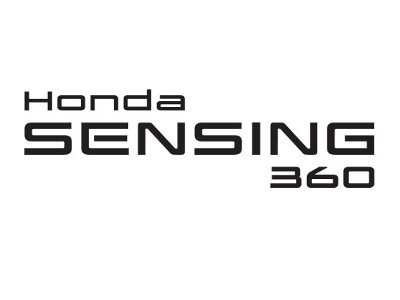
Contents
Honda has unveiled the new Honda SENSING 360 omnidirectional safety and driver-assistive system which removes blind spots around the vehicle and contributes to collision avoidance and the reduction of driver burden while driving. Further evolved from the previous system, Honda SENSING 360 features an expanded sensing range not only in the front and rear, but omnidirectionally around the vehicle.
Application of Honda SENSING 360 will begin in 2022 with automobile product introduced in the Chinese market. Honda will strive to expand the application to all models to go on sale in all major markets by 2030.
Striving for a collision-free society for everyone sharing the road, represented by the global safety slogan Safety for Everyone,
Honda has been pursuing the research and development of safety technologies from the perspective of both hardware and software. Since its introduction in 2014, the Honda SENSING*1 advanced safety and driver-assistive system has been further advancing its functions, expanding its application to mass-production models globally and supporting Honda customers in a variety of driving situations.
Honda SENSING 3601 realized 360-degree sensing2 by adding a total of five units of millimeter-wave radar in front and at each corner of the vehicle, in addition to the monocular camera3 which is used by the current Honda SENSING. This expanded sensing range covers blind spots around the vehicle which are difficult for the driver to visually check and contributes to the avoidance of collisions with other vehicles and pedestrians as well as a reduction of the driver burden related to driving. For the development of Honda SENSING 360, Honda leveraged its knowledge and know-how amassed through the research and development of Level 3 automated driving technologies.
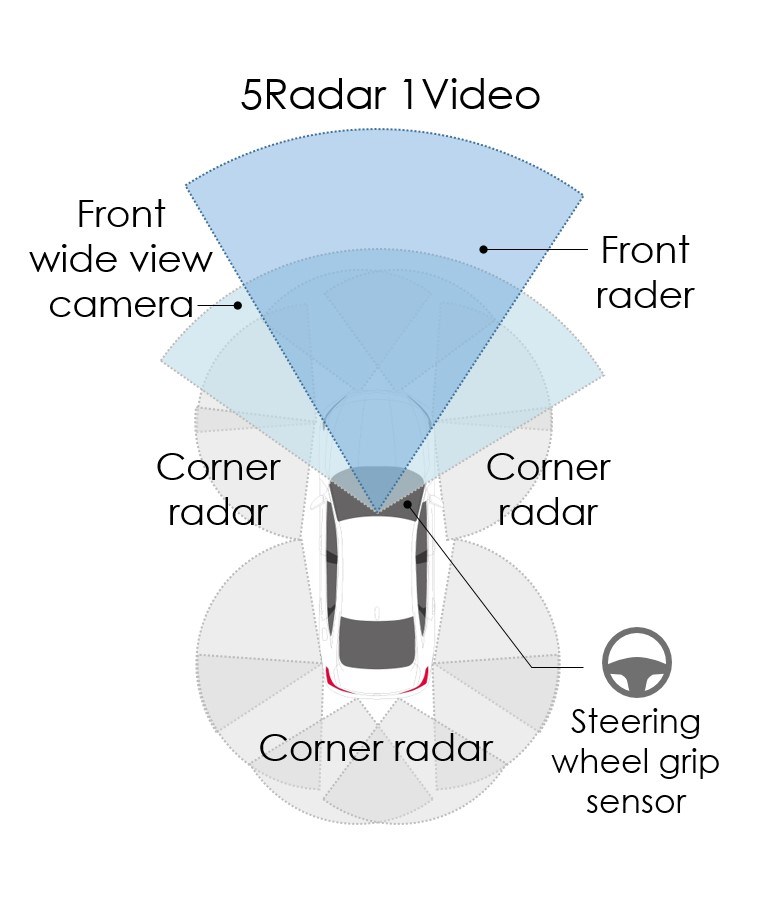
Honda is striving for zero traffic collision fatalities involving Honda motorcycles and automobiles globally by 20504. While leveraging strengths unique only to a company that has both motorcycle and automobile businesses, Honda will continue its sincere efforts to play a leading role in the realization of a collision-free society.
Key features of Honda SENSING 360
Advancement of Collision Mitigation Braking System (CMBS)
When making a right or left turn at an intersection on a surface street, when the system detects other vehicles or pedestrians and recognizes the risk of a collision, the Collision Mitigation Braking System (CMBS) will kick in. Advanced from the CMBS of the current Honda SENSING, the CMBS for Honda SENSING 360 has a broader range of detection that is expanded from in front of the vehicle to include all directions around the vehicle. This enables the system to assist the driver in the avoidance and mitigation of a collision with another vehicle or pedestrian entering an intersection at the same time from different directions.
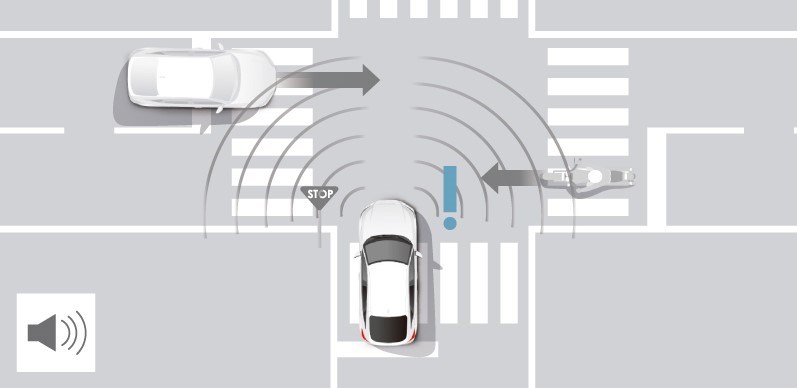
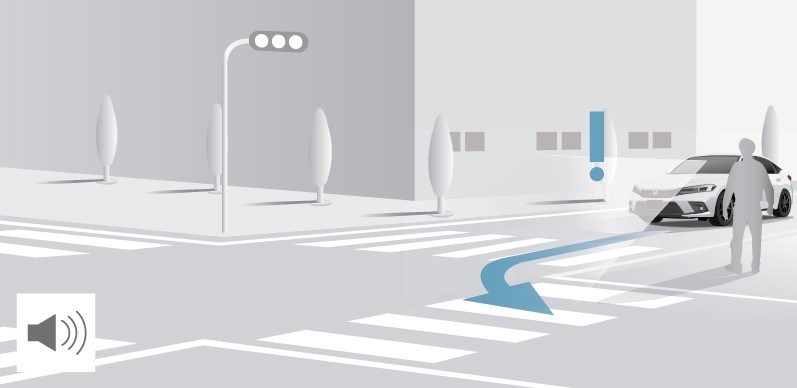
Front Cross Traffic Warning
When the vehicle is driving at a low speed or starting from a stop at an intersection on a surface street, the system notifies the driver of information about vehicles approaching to cross the intersection from the sides and front. When it recognizes the risk of a collision with the crossing vehicle, the system provides audio warnings and visual warnings on the meter to alert the driver and prompt collision avoidance actions.
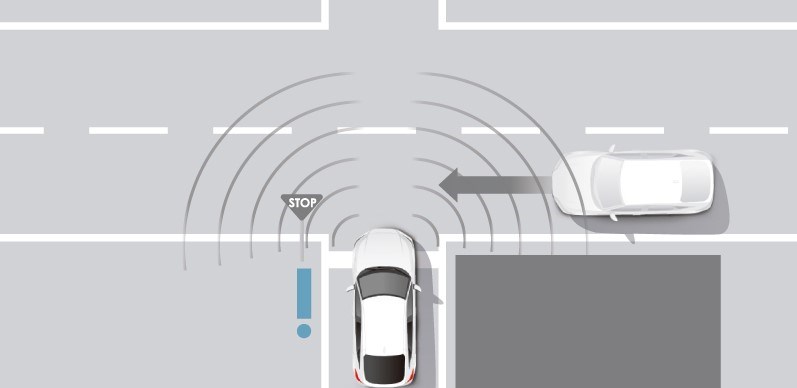
Lane Change Collision Mitigation
When making a lane change, the system assists the avoidance of a collision with a vehicle in the adjacent lane approaching from behind. When the system recognizes the risk of collision with a vehicle approaching from the blind spot behind the vehicle, the system provides audio warnings and visual warnings on the meter to alert the driver and assist steering for collision avoidance.
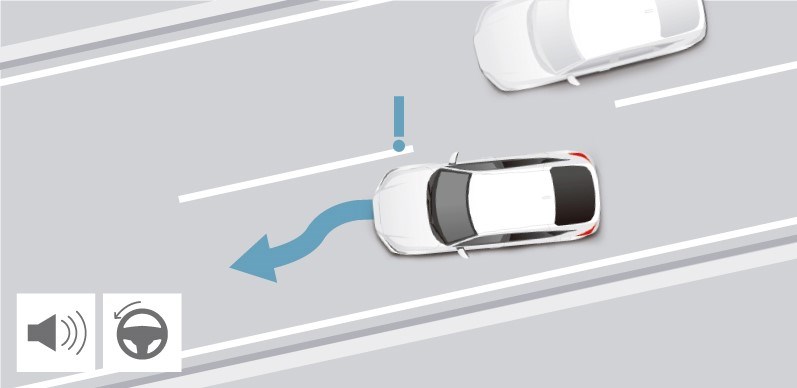
Active Lane Change Assist5
While driving with Adaptive Cruise Control (ACC) with Low-Speed Follow and the Lane Keeping Assist System (LKAS) activated and when certain conditions are satisfied on an expressway, when the driver puts on the turn signal6, the system assists with steering for the lane change.
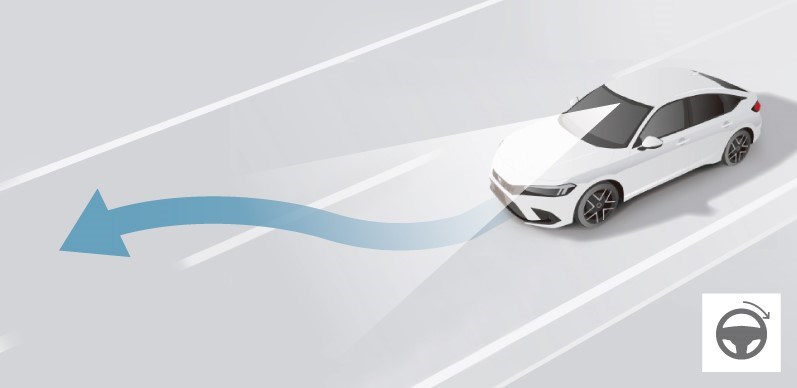
Cornering Speed Assist
While cornering on an expressway with ACC engaged, the system properly adjusts vehicle speed. Using a front camera, the system detects the curvature of the lane before reaching the curve and assists the driver to complete smooth cornering.
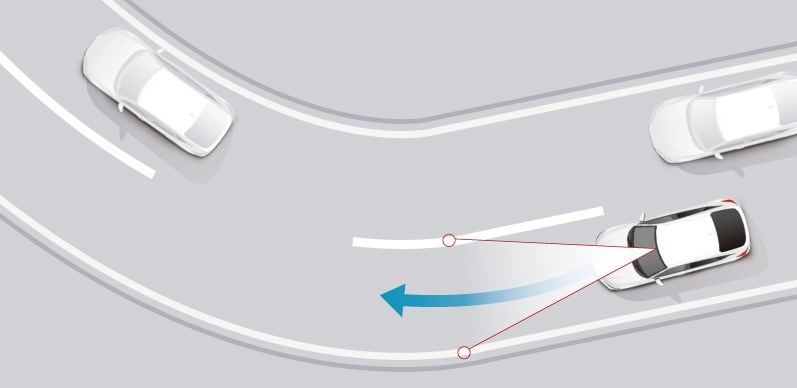
-
There is a limit to the capabilities (e.g. recognition capability and control capability) of individual functions of Honda SENSING and Honda SENSING 360. Please do not overestimate the capabilities of each Honda SENSING/Honda SENSING 360 function and drive safely while maintaining a good driving posture, paying constant attention to your surroundings. ↩
-
There is a limit to the detection performance of Honda SENSING 360. The 360-degree sensing does not eliminate the need for visual confirmation by the driver. ↩
-
Depending on the sales period and models, some Honda SENSING systems feature a camera which is not a monocular camera. ↩
-
Honda's 2050 safety target was announced at the Honda global CEO inaugural press conference held on April 23, 2021. https://global.honda/newsroom/news/2021/c210423eng.html?from=topcopy ↩
-
Active Lane Change Assist is not designed to assist steering for lane changes in all situations. ↩
-
The driver needs to confirm safe surroundings including the intended lane to enter prior to putting on the turn signal to activate the Active Lane Change Assist function. ↩